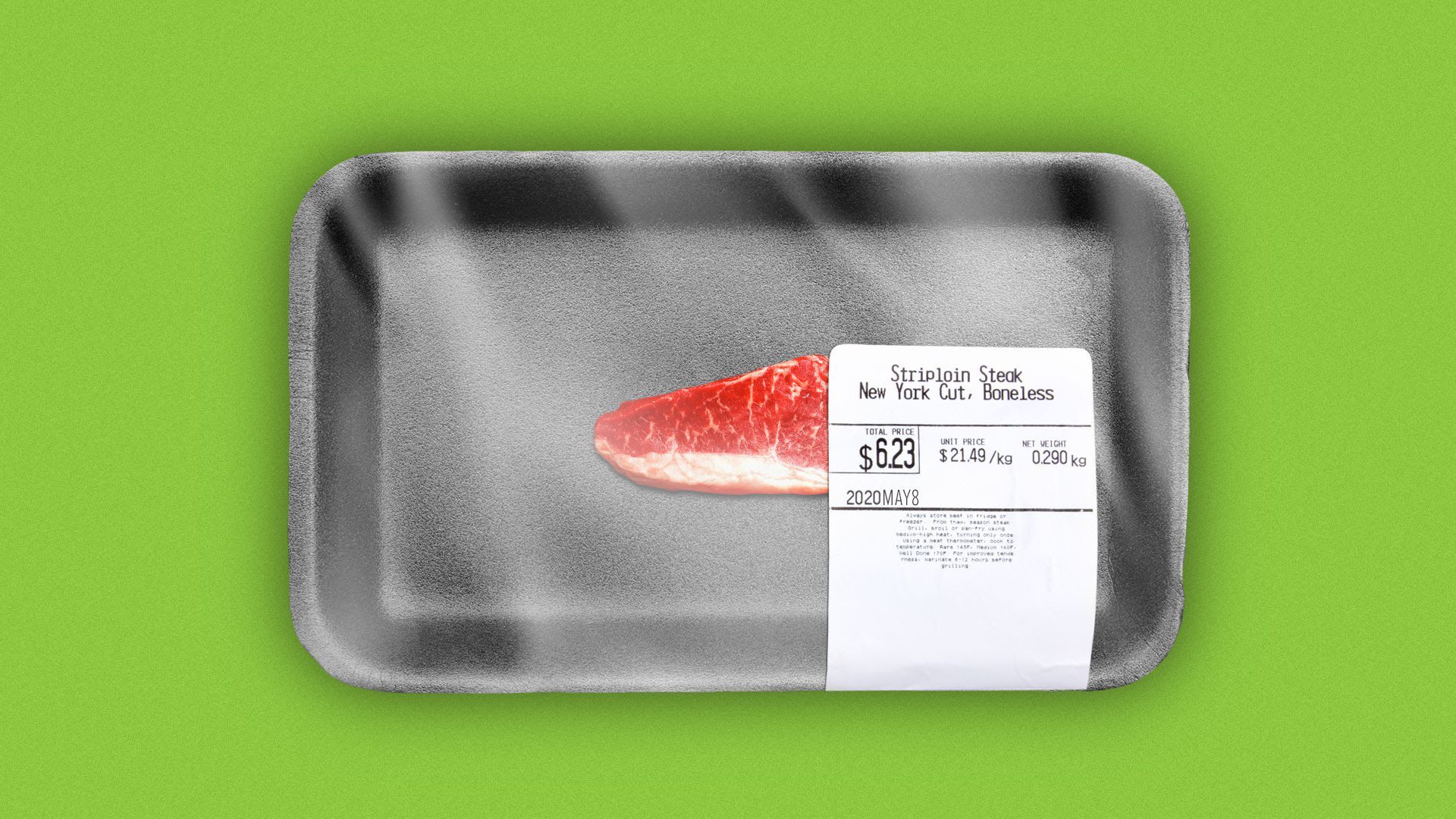Coronavirus breaks the food supply chain
Add Axios as your preferred source to
see more of our stories on Google.

Illustration: Aïda Amer/Axios
America's food supply chain is in trouble because of coronavirus outbreaks in rural meatpacking plant communities.
Why it matters: For consumers, this means less meat at the grocery store. For many farmers, this means the prospect of financial ruin. For many animals, this means euthanasia instead of slaughter.
The big picture: Plants in more than a dozen states have closed in recent weeks, spanning beef, pork, poultry and fish.
- Many more plants are struggling to remain open despite significant outbreaks.
- More than 25% of U.S. pork production is now offline because of plant closures, WashPost reports, citing industry analysts.
- Tyson Foods described this as a "breaking" of the food supply chain, warning on Sunday that millions of animals will need to be killed without being turned into food.
Between the lines: There's also an enormous human toll taking place at these plants.
- “It is not going to be easy to get workers six feet apart,” William Schaffner, a professor of infectious diseases, told the N.Y. Times. “If you space people out, you reduce productivity.”
What's next: House Agriculture Chair Collin Peterson told CNN today that he predicts shortages of pork as soon as next week.
- Peterson estimated that 60,000–70,000 pigs a day will need to be euthanized.
- If things don't turn around fast, "we are going to see multigenerational, longstanding [hog] farms not get through this financially," Minnesota hog farmer Greg Boerboom told the Star Tribune.
The bottom line: America's farmers have long feared that everyday citizens were clueless about how their food gets made.
- Unfortunately, it appears that this education is now happening in a flash.
Go deeper: Why the food supply chain has been so slow to pivot
